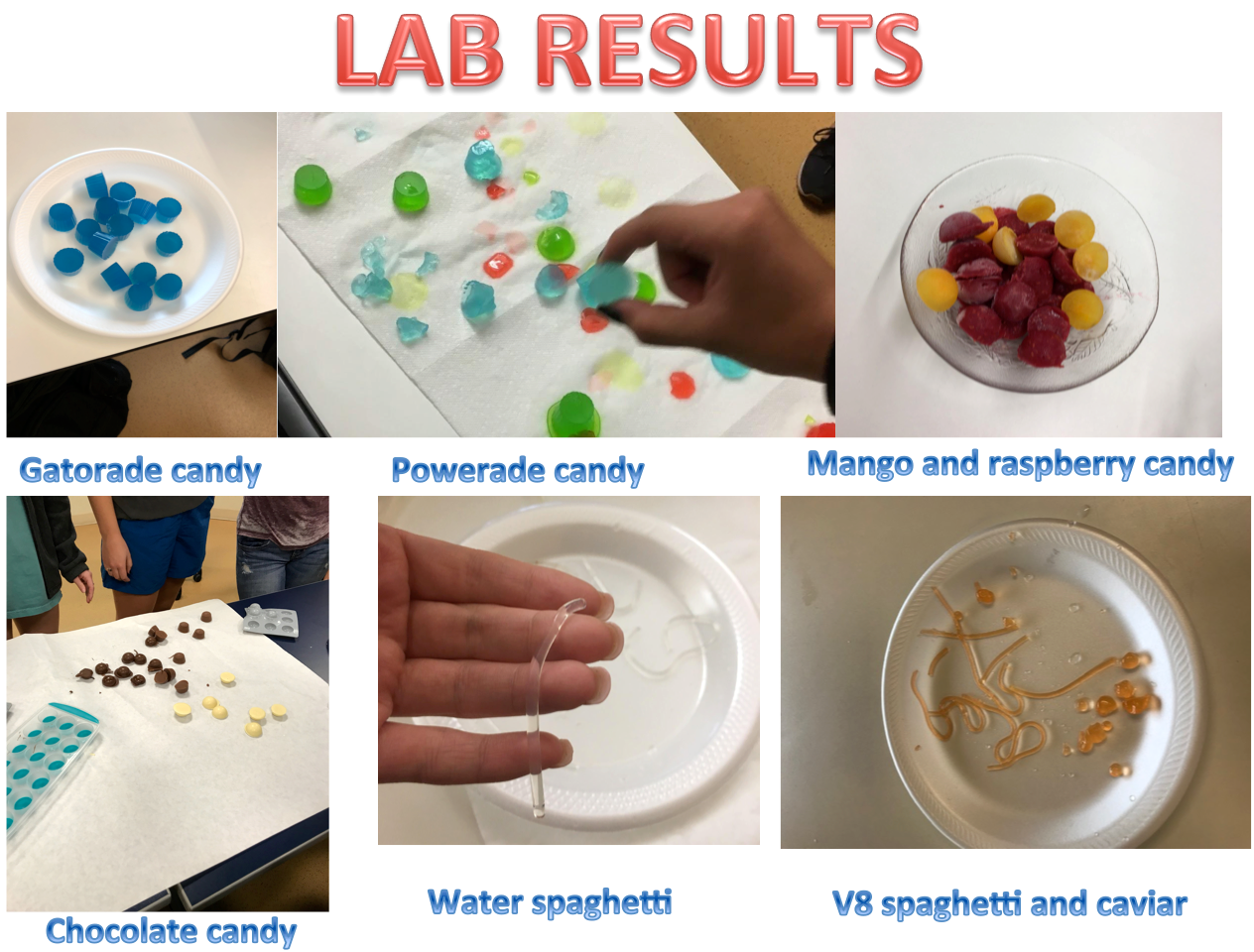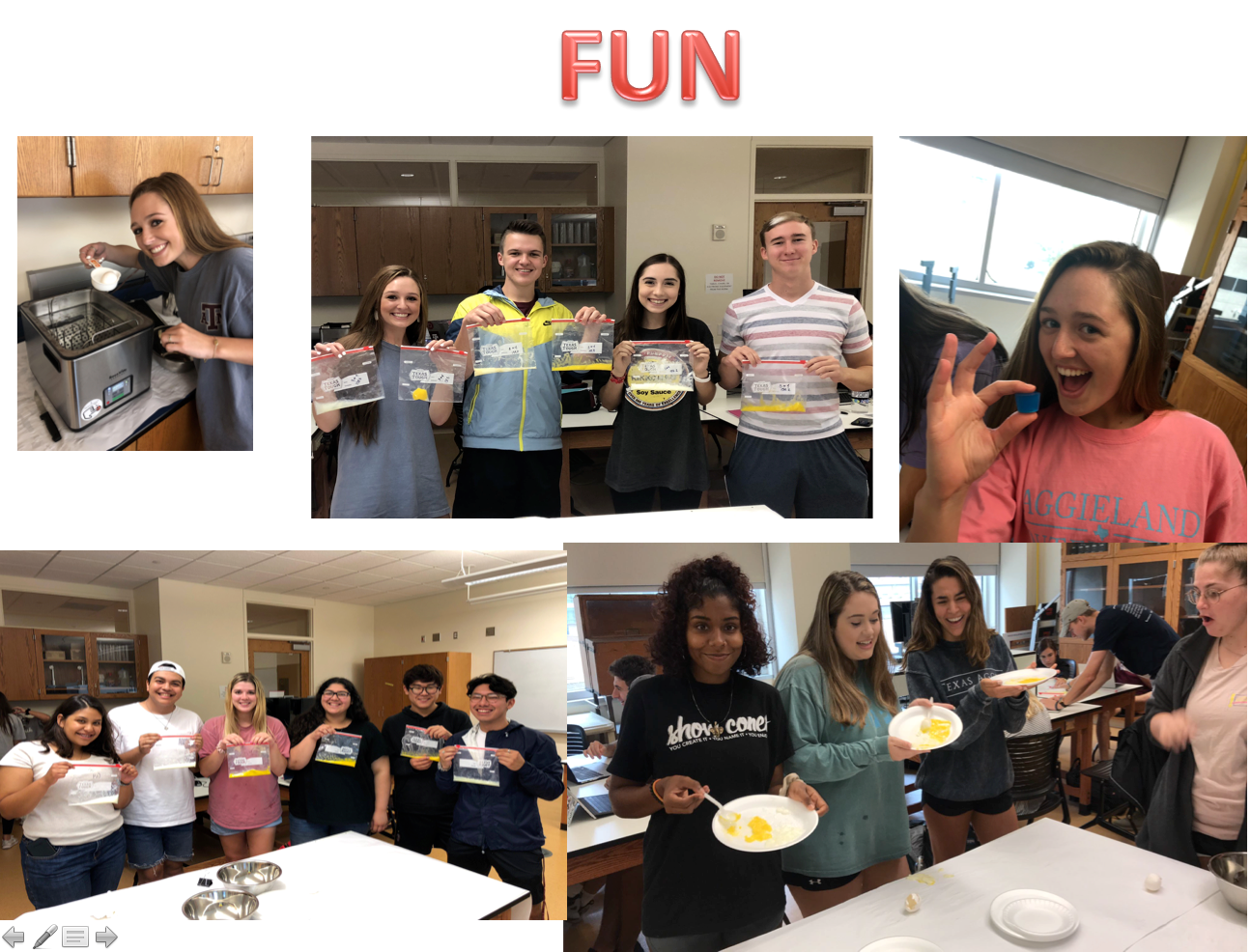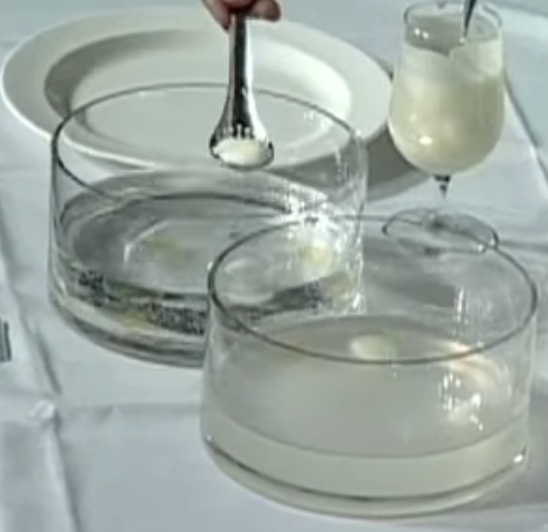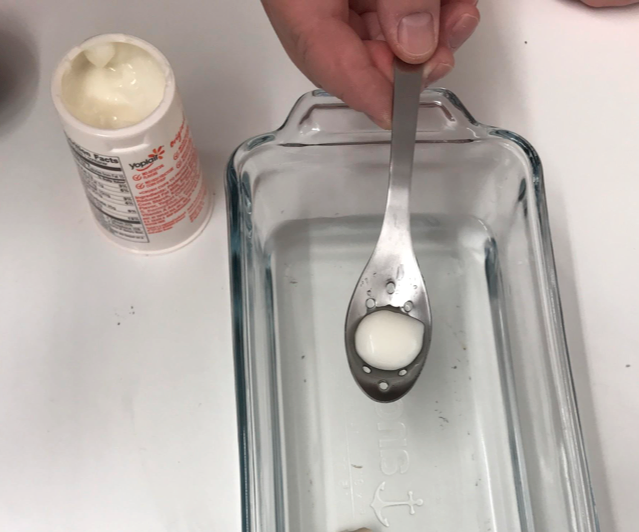
HOME |
SYLLABUS |
LAB1 |
LAB2 |
LAB3 |
LAB4 |
HARVARD COURSE |
CONTACT |

INTRODUCTION TO SOFT MATTER PHYSICS (2 hours/week)
and
LABS ON SOFT MATTER (2 hours/week)
to clarify basic principles of soft matter physics.
2. NO TEXTBOOK!
3. SIMILAR TO HARVARD COURSE SCIENCE AND COOKING!


All above substances are also used as a food. Traditional cooking use many physical processes. The most extencively the soft matter physics is used in Molecular Gastronmy. You will learn different methods used in Molecular Gastronomy to create variety of gels, membranes and emulsions.

Ferran Adria Talk at CIA
Ferran Adria demonstrate our Spherification lab at CIA


1. SIMPLISITY ( Non-star cook Max is making fruit caviar and fruit spaghetti. Compare with Star Chef Jose Andres demonstrations.)
2. NOVELTY (We have more Molecular Gastronomy than Harvard course)
3. SIMPLY FUN (Molecular Gastronomy dishes are small and a perfect way to surprise your friends with your elite culinary skills. Here are just a few ideas from Pinterest: You can cook them for your party!)
|
Harvard course Science and Cooking. Introductory Lecture: Harold McGee Harvard course Science and Cooking. Introductory Lecture: Ferran Adria Harvard course Science and Cooking. Sous-vide Lecture by Joan Roca Harvard course Science and Cooking. Gelation Lecture by Jose Andres
|
HOME |
SYLLABUS |
LAB1 |
LAB2 |
LAB3 |
LAB4 |
HARVARD COURSE |
CONTACT |